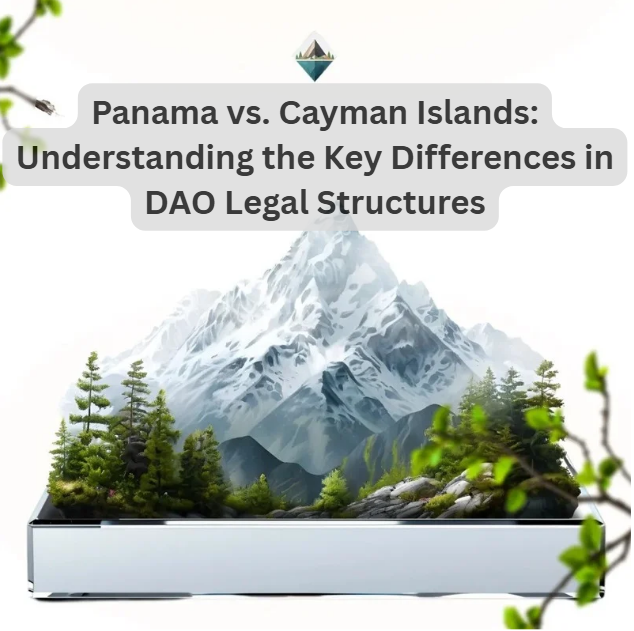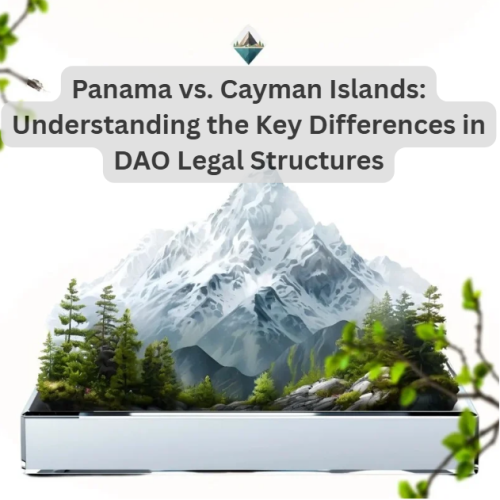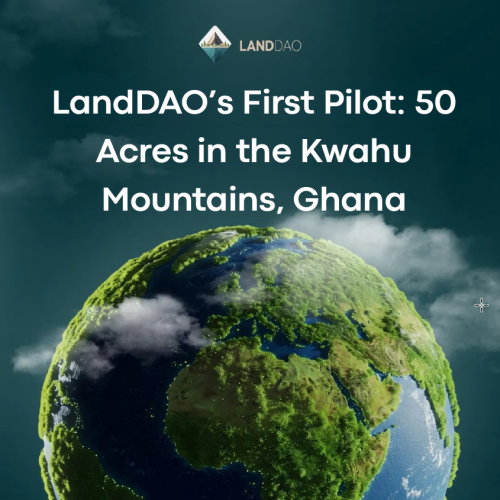As DAOs move from experimental collectives into real economic networks, the need for a proper legal wrapper becomes unavoidable. A legal foundation helps a DAO hold assets, sign agreements, manage a treasury, and interact with the off-chain world without forcing individual contributors to carry liability.
Among the many global options, Panama and the Cayman Islands are two of the most commonly explored jurisdictions. Both offer foundation-type entities that can support decentralized governance but they serve different needs, different budgets, and very different levels of regulatory expectation.
This article breaks down the core differences in a simple, clear, and practical way.
What a DAO Legal Foundation Actually Does
A foundation gives the DAO something it doesn’t naturally have on-chain: an off-chain legal personality. It becomes the holder of the protocol’s treasury, the counterparty that can sign agreements, and the entity that can represent the DAO in courts or regulatory situations if needed.
In Web3, foundations are also used to decentralize ownership. Instead of shareholders or founders, the foundation becomes “ownerless” and governed according to the DAO’s rules. Both Panama and Cayman support this concept, but the level of flexibility and recognition differs.
Panama Foundation
Panama’s Private Interest Foundation has existed since 1995. It was not designed for DAOs — but because of its simplicity, privacy, and affordability, it has been adopted by several early-stage Web3 teams.
These foundations work best for straightforward DAO needs, especially when the priority is asset holding rather than complex governance.
Where Panama has been used in Web3
One of the clearest and most well-known Web3 projects using a Panama foundation is SushiSwap. In 2022, SushiDAO voted to create three legal entities: a Cayman Islands DAO Foundation, a Panamanian Private Interest Foundation, and a Panamanian Corporation.
- The Panamanian Foundation oversees aspects of the protocol such as smart contracts for staking, AMMs, and order books.
- The Panamanian Corporation handles the front-end user interface of the protocol, acting as a subsidiary to the foundation.
Other DeFi projects (such as Forward Protocol, Zaros, and OpenPeer) and Web3 social/prediction apps like Polymarket and NFTfi use Panamanian foundations.
Key characteristics
Panama is popular for DAOs that need:
- Low cost (both setup and annual upkeep)
- Fast formation with minimal documentation
- High privacy — council members and beneficiaries are not publicly listed
- Territorial tax treatment, which generally excludes foreign income
However, the tradeoff is visibility. Major exchanges, compliance-focused partners, and institutional investors are far less familiar with Panama foundations, which can create friction.
Cayman Foundation Companies
The Cayman Foundation Company, introduced in 2017, has become the de facto legal structure for mature DAOs and token projects. It was designed with modern governance flexibility in mind, making it ideal for decentralized or token-governed organizations.
It is widely recognized across the global financial and Web3 ecosystems.
Where Cayman has been used in Web3
Many leading protocols rely on Cayman foundations, including:
- Aave – for governance and treasury operations
- Synthetix – uses Cayman for its protocol foundation
- SSV Network – has publicly documented its choice of a Cayman foundation company
These examples illustrate how Cayman has become the preferred option for DAOs expecting serious growth, audits, partnerships, or broad token distribution.
Key characteristics
Cayman is favored for its:
- Strong reputation with exchanges, custodians, and institutional investors
- High governance flexibility, designed for ownerless, token-based structures
- Mature professional ecosystem of service providers
- Tax neutrality with no corporate, capital gains, or withholding taxes
The downsides are predictable: Cayman is more expensive, requires stricter KYC, and demands ongoing legal and administrative support.
Key Differences: A Simple Side-by-Side Comparison
| Category | Panama Foundation | Cayman Foundation Company |
| Setup Cost | Low | High |
| Annual Maintenance | Low | High |
| Regulatory Reputation | Moderate | Very high (Web3-friendly) |
| KYC/Compliance | Lighter | Strict |
| Governance Flexibility | Moderate | Very strong |
| Industry Adoption | Limited | Extensive (used by major protocols) |
| Best For | Asset holding, small DAOs, early stages | Public DAOs, governance, token issuance, institutional interaction |
When a DAO Typically Chooses One Over the Other
A DAO might lean toward Panama when it is early-stage, experimenting, or operating on a smaller scale with a limited budget. These DAOs often prioritize simplicity over institutional alignment and do not immediately require complex governance mechanics or global partnerships.
A DAO might choose Cayman when it is building a public infrastructure protocol, issuing a widely held token, or expecting to coordinate with regulated financial institutions. These DAOs tend to prioritize legal robustness, industry recognition, and long-term sustainability.
Conclusion
Panama and Cayman both offer valid pathways for establishing a DAO foundation, but they serve different needs. Panama offers simplicity, speed, and affordability, ideal for smaller or earlier-stage projects. Cayman offers a structured, globally recognized, and governance-friendly environment, ideal for protocols that expect significant scale and public participation.
There is no universal “best” choice. The right jurisdiction depends on the DAO’s maturity, ambitions, and whether it requires institutional credibility or simply a functional, cost-efficient wrapper.




